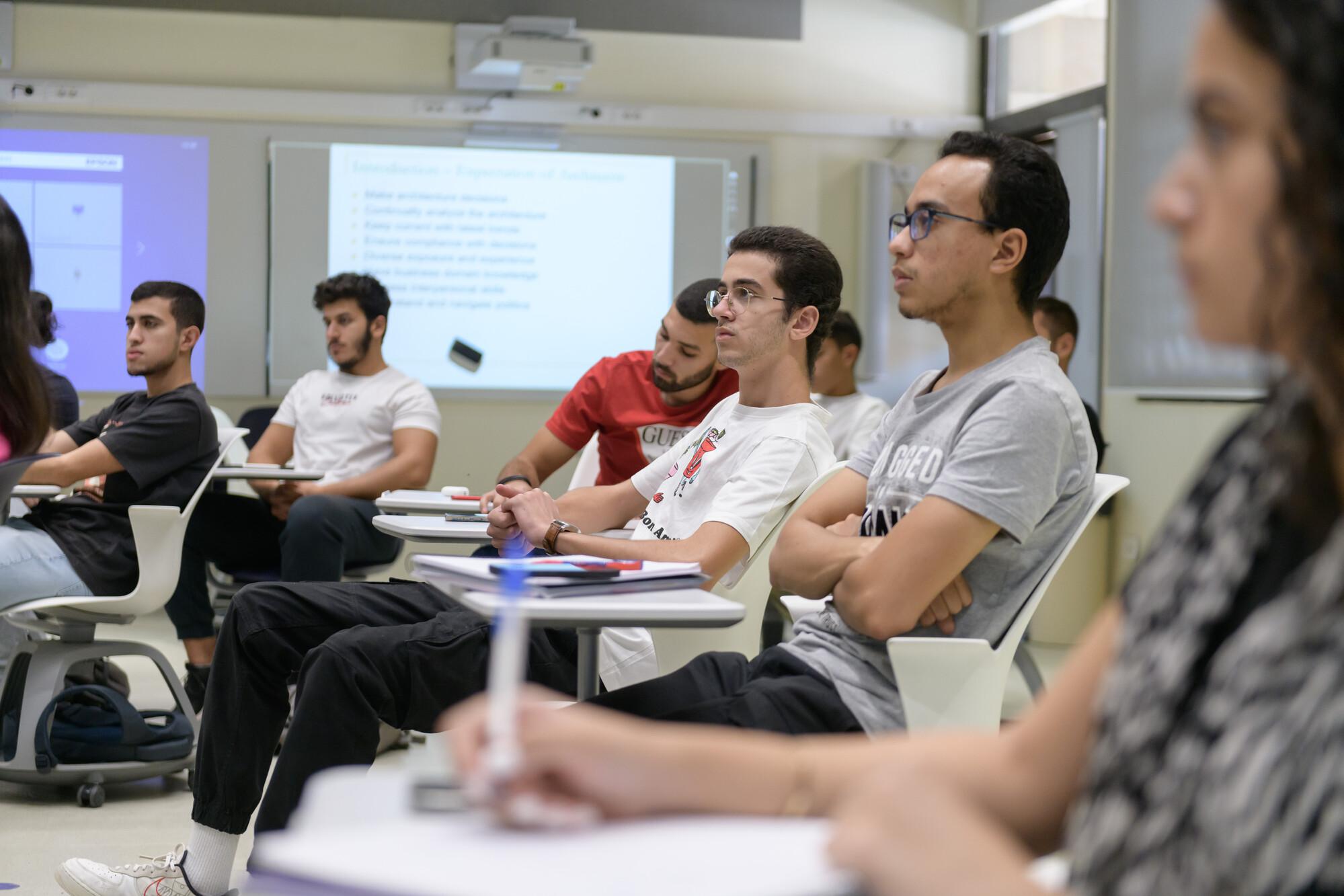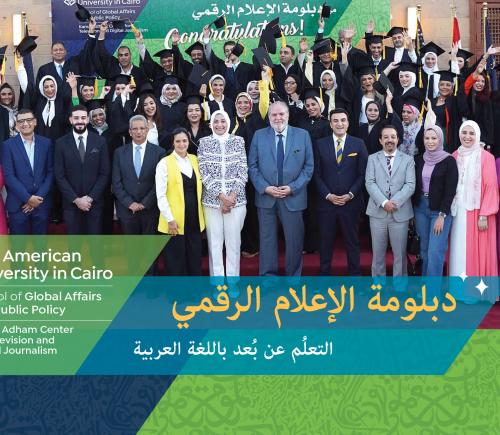Professional Development Program (PDP)
About the Professional Development Program
The professional development program (PDP) offered by the Kamal Adham Center for Television and Digital Journalism is designed for those who are currently working or striving to work in television journalism, advertising or other professional activities directly related to television journalism.
- Program courses are offered in flexible formats to accommodate the needs of working professionals.
- The content of the courses offered is both theoretical and practical, with more concentration on the practical workshops.
- The center's instructors for this program have both academic and professional experience in the field of television journalism.
Short Courses
Short Courses are regularly offered for individuals who wish to receive intensive, professional training and education in the field of television and digital journalism.
Tailored Programs
The PDP offers tailored programs for organizations upon request. Some of our major clients include the Supreme Council for Media Regulation, the Ministry of Education, the World Bank, the Swedish Institute Alexandria, the World Endoscopy Organization, the Institute for Diplomatic Studies, and more.
Contact Us |
|---|
For short courses and tailored programs inquiries, Professional Development Program AUC Avenue, P.O. Box 74 |


